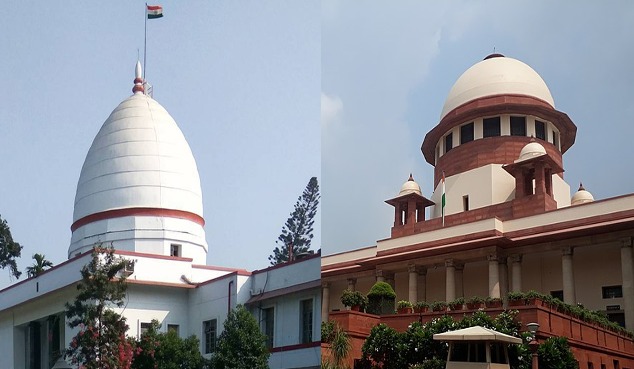
The Supreme Court recently held that a High Court can order the transfer of civil cases inter-state if it has jurisdiction over the states involved.
A bench of Justice Hrishikesh Roy and Justice Dipankar Datta determined that a High Court can exercise the power under Section 24, CPC (general power of transfer and withdrawal) for the inter-State transfer of a civil suit, appeal, or other proceedings if it is the common High Court for all the States involved.
The bench underlined that the Supreme Court’s powers to transfer civil proceedings across states under Section 25, CPC apply only in cases where each state has its own High Court under Article 214 of the Constitution.
“It is time all concerned realize that a High Court ~ howsoever big or small, old or new ~ is as much a Constitutional Court as this Court is and enjoys wide ranging powers vested in it by law. No doubt, the power under section 25 is a special power, but the common High Courts of the country ought not to read section 24 of the CPC in a manner as if the power of the Supreme Court under section 25 to order an inter-State transfer is available to be exclusively exercised by it in all cases of inter-State transfer,” the bench stated.
The case involved a challenge to the Gauhati High Court orderwhich refuses to transfer a civil case.
After the Gauhati High Court declined to relocate their civil matter from Dimapur in Nagaland to Guwahati in Assam, the appellants (Shah Newaz Khan and others) moved the Supreme Court.
In addition to previous precedents, the Gauhati High Court, which serves as the common High Court for the States of Assam, Nagaland, Mizoram, and Arunachal Pradesh, relied on the Supreme Court’s ruling in Durgesh Sharma v. Jayshree in order to reject the transfer argument.
This order was challenged before the apex court.
The bench pondered on whether the Supreme Court is the single repository of authority in terms of Section 25 of the CPC when it comes to the inter-State transfer of civil matters, or if a High Court common to more than one State also possesses such transfer powers under Section 24 of the CPC.
The bench emphasised that Section 24 gives High Courts broad authority to transfer and withdraw cases at any time, either on their own initiative or on the request of the parties.
It further determined that Section 25 does not preclude a common High Court, such as the Gauhati High Court, from hearing an application under Section 24, even for an inter-state transfer, if the High Court has jurisdiction over the states in question.
The Court argued that the Section 25 limit was intended to prevent High Courts from transferring proceedings to a State over which the Court has no jurisdiction. According to the bench, Section 25 is used only when the transfer includes two or more states that are subject to the jurisdiction of different High Courts.
The Court further stated that a restrictive reading of Section 25 would impose a substantial cost and difficulties on plaintiffs in remote districts of northeast India.
As a result, the Supreme Court directed the Gauhati High Court to decide the appellants’ transfer application under Section 24 afresh and on its own merits.





